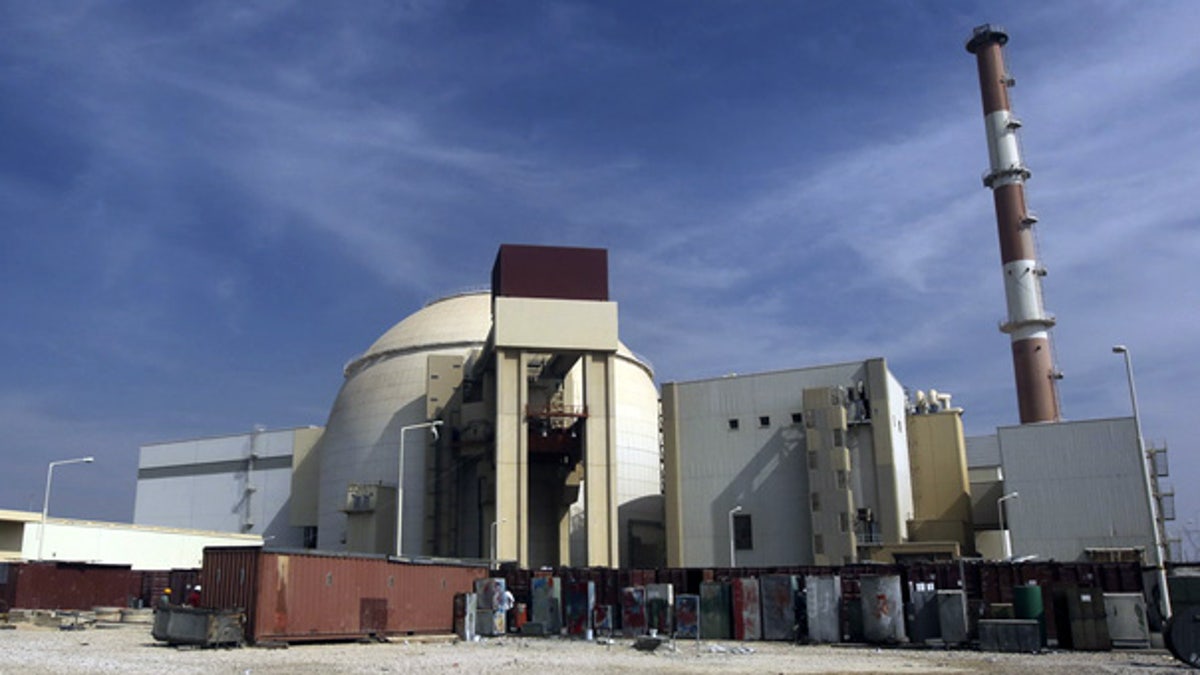
Oct. 26: The reactor building of the Bushehr nuclear power plant in Iran. (AP)
MOSCOW – The first reactor at Iran's Bushehr nuclear power plant has gone into operation, the Russian state company that built the complex said Tuesday.
Atomstroyexport company said in a statement that a self-sustained fission reaction began Sunday.
It said the reactor was brought to "the minimum controlled power level" and that tests of control and protection systems would now be conducted.
Iran last year said that the often-delayed operation of the plant was to begin last December. But in February, Russia ordered that fuel be removed because of concerns that metal particles might be contaminating fuel assemblies; reloading began in April.
The United States and some of its allies believe the Bushehr plant is part of an Iranian attempt to develop nuclear weapons. Iran denies the accusation.
The Bushehr project dates back to 1974, when Iran's U.S.-backed Shah Mohammed Reza Pahlavi contracted with the German company Siemens to build the reactor. The company withdrew from the project after the 1979 Islamic Revolution toppled the shah and brought hard-line clerics to power.
In 1992, Iran signed a $1 billion deal with Russia to complete the project and work began in 1995.
Under the contract, Bushehr was originally scheduled to come on stream in July 1999.
In April, an Iranian lawmaker said the parliament has launched an investigation into repeated delays in the startup of Bushehr. The delays have prompted Iranian officials to describe Russia as an "unreliable partner" and Iran's state media have often said politics, not technical issues, are the reason behind them.
In the most recent delay, Russia said damaged elements were found in a cooling pump at the plant, raising the possibility that metal particles could get on the fuel assemblies, and ordered the fuel assemblies be removed for washing.
Foreign intelligence reports also have said the control systems at Bushehr were penetrated by Stuxnet, a malicious software designed to infiltrate computer systems. Iran has maintained that Stuxnet was only found on several laptops belonging to plant employees and didn't affect the facility's control systems.
On Saturday, Gholam Reza Jalali, head of a military unit in charge of combatting sabotage, said last month that Iranian experts have determined that the United States and Israel were behind Stuxnet.








































